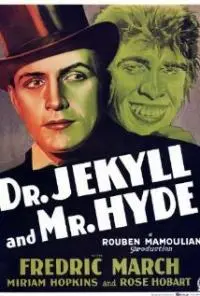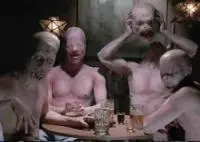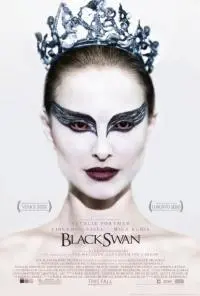Let me get this column started by stating I don't actually put much stock into the Academy Awards as a true barometer of cinematic quality, at least in terms of the big winners every year. More often than not, the "losers" of the evening are far better than the winners. But it is an honor to be acknowledged for your efforts, no matter who's doing the acknowledging, and the Oscars continue to be a big deal. So it is curious that the horror genre, once recognized—marginally, yes, but recognized nonetheless—by the Academy of Motion Picture Arts and Sciences (or just the Academy for short) has pretty much dropped off their most prestigious radar. What happened?
Perhaps we'd better start from the beginning...
But first, allow me to point out that I'm primarily concerned with the most prominent awards here: Best Picture, Best Director, Best Lead Actor/Actress, Best Supporting Actor/Actress, and Best Original/Adapted Screenplay. I mean no disrespect to the other categories (cinematography, art direction, special effects, etc.) by focusing only on those listed above. Every creative contribution to a film is important, but it's no secret that audiences—and the Academy—recognize and identify most strongly with contributors landing somewhere in the categories listed above, which means that if a film is greatly loved by a large number of people, it will have a nomination in one of these areas.
Now, let's dig into horror's relationship with the Oscars, starting with the genre's earliest nominations.
A Brief History: 1932-1999
The first horror film to receive Oscar nods was Dr. Jekyl and Mr. Hyde, released in 1932. The movie received two nominations, one acknowledging the performance of Fredric March (a popular actor of his time, somewhat forgotten these days) as the titular character(s), and another for Samuel Hoffenstein and Percy Heath for their screenplay adaptation. March won, though he had to share his Best Actor statue with Wallace Beery, who was apparently fantastic in a movie called The Champ. The screenwriters lost to something called Bad Girl. Note that iconic Universal monster films Dracula and Frankenstein, both eligible for nominations in 1932, are nowhere to be found.
 For a period of about forty years after, nominations were sporadic, and wins all but nonexistent. Films considered classics today were largely ignored by the Academy, like Psycho, which received only two of the most prominent nominations, Best Director for Alfred Hitchcock and Best Supporting Actress for Janet Leigh. Neither won. Rosemary's Baby, beloved by many who don't like horror at all, met with much the same snubbing. Roman Polanski was only acknowledged for his screenplay adaptation (he lost), and Ruth Gordon was nominated (and deservedly won) Best Supporting Actress for her turn as Minnie Castavet.
For a period of about forty years after, nominations were sporadic, and wins all but nonexistent. Films considered classics today were largely ignored by the Academy, like Psycho, which received only two of the most prominent nominations, Best Director for Alfred Hitchcock and Best Supporting Actress for Janet Leigh. Neither won. Rosemary's Baby, beloved by many who don't like horror at all, met with much the same snubbing. Roman Polanski was only acknowledged for his screenplay adaptation (he lost), and Ruth Gordon was nominated (and deservedly won) Best Supporting Actress for her turn as Minnie Castavet.
The first horror film to receive a Best Picture nomination? Well, I suppose that depends on your personal definition of the genre. If it's loose, and includes some titles normally lumped into the "psychological thriller" category, then John Boorman's 1972 film Deliverance technically came first. However, if hillbilly's terrorizing a group of city boys isn't terrifying enough for you, then the uncontested champion of the "who came first" game is The Exorcist, released one year later.
Since we can all agree that The Exorcist is a horror film, let's focus on it, shall we? This is a more interesting film to examine within the context of this column anyway, not only because there will be no arguments as to its genre, but also because it was the first horror film to receive a nomination in damn near every prominent category. True to typical Academy form, Best Picture went to The Sting, a feel-goody caper movie with a catchy theme song, with every other Oscar going to creators involved with The Sting and a host of other movies not about a pea-soup vomiting demon girl. Only writer/director William Friedkin took home a golden statue that night for his Adapted Screenplay.
Despite The Exorcist losing all but one award, the fact that it could have easily swept the Oscars by way of its numerous nominations said something about the mainstream acceptance of horror, and by the next year, when Jaws, and thus the genre, found its way into the Best Picture category again, it seemed a trend was set in place (it lost, by the way). In the year following, Carrie was representin' horror at the Oscars, with duel Best Actress nomination for Sissy Spacek as the titular character and Piper Laurie as Carrie's batshit zealot mother Margaret. Again, neither were awarded the "top honors," but also again, the genre was present and accounted for. Horror, it seemed, was here to stay.
Then another decade went by before a horror film received any kind of attention. Sigourney Weaver got a nomination for reprising Ellen Ripley in Aliens, a sequel which is more action-sci-fi-oriented and less concerned with horror than its predecessor. Nominated, no win. Four more years elapsed before horror got its recognition again, this time with a statue awarded to Kathy Bates for her brilliant performance in Misery.
1991 (or 1992, if you will, since Oscars go out the year after a film's release) was the almost-game-changer. We had another juggernaut in the running, and it's name was The Silence of the Lambs. Like The Exorcist nearly twenty years prior, Jonathan Demme and company's film swept up nominations in mostly all the prominent categories; but unlike Friedkin's film, SOTL actually won every last one of them. Best Adapted Screenplay, Best Actress, Best Actor, Best Director, Best Film. Take that Bugsy, The Prince of Tides, and Thelma & Louise! It was truly a glorious night for horror fans.
And I hope everyone enjoyed it, because eight years of snubbing would transpire before horror entered the ring again. What was the next spooky entry into the Oscar-nomination annals? Er...The Sixth Sense, with a handful of prominent nods, including Best Picture.
This isn't a bad movie, per se. It's just a one-and-done type of movie. You watch it once, you experience the twist ending—which you could see coming if you were really paying attention—and then that's it. The movie is based around the surprise, and it doesn't really demand multiple viewings, unlike SOTL, The Exorcist, Rosemary's Baby, et al. Like I said, The Sixth Sense is okay, but (at least in my opinion) it's definitely not a hallmark of the horror genre, and it's kinda derivative of Jacob's Ladder, a far better film released nine years prior that was completely ignored by the Academy.
2000-Present Day
Horror recognition at the Oscars pretty much disappeared at this point. Willem Dafoe got a Best Supporting Actor nomination for Shadow of the Vampire, and then...
 Well, if you count Black Swan, then 2011 was the last year the Academy gave any love to the genre. But while I recognize the horror elements evident in Black Swan, I don't really consider it a horror film—a psychological thriller at best, but even that distinction doesn't quite capture the film's genre. It comes so very close to horror, but at the end of the day, I just can't label it as such. I think it's ultimately disqualified because we know from the outset the horrific things Natalie Portman's character experiences are hallucinations. If it were a horror film, the audience wouldn't be able to tell if the character was crazy, or if these nightmare visions were in fact real. Darren Aronofsky and company didn't take this route, and thus a horror film they did not make.
Well, if you count Black Swan, then 2011 was the last year the Academy gave any love to the genre. But while I recognize the horror elements evident in Black Swan, I don't really consider it a horror film—a psychological thriller at best, but even that distinction doesn't quite capture the film's genre. It comes so very close to horror, but at the end of the day, I just can't label it as such. I think it's ultimately disqualified because we know from the outset the horrific things Natalie Portman's character experiences are hallucinations. If it were a horror film, the audience wouldn't be able to tell if the character was crazy, or if these nightmare visions were in fact real. Darren Aronofsky and company didn't take this route, and thus a horror film they did not make.
So with Black Swan out, that means fourteen years have passed since a horror film was nominated for an Oscar. That's the longest gap in the Academy's history. And since that time we've seen a number of high-quality horror films released: American Psycho, Session 9, 28 Days Later, Pan's Labyrinth, The Orphanage, Teeth, Let The Right One In, The Awakening, We Are What We Are, Mama (not a great movie overall, but the effects and cinematography were outstanding), the Carrie remake (mostly for Julianne Moore's performance as Margaret White, which I prefer to Piper Laurie), as well as horror-comedies Fido and Shaun of the Dead (I mean come on, Best Original Screenplay of all time!), just to name a few. Not all these titles are necessarily Best Picture-worthy, but I do feel they deserve some kind of major recognition.
So...What The Hell Happened?
There are numerous (potential) answers as to why horror no longer shows up on Oscar night. One pertains to the rules of nomination, and how Academy membership and voting actually works, which is a complicated matter I can't adequately decipher, let alone discuss within the confines of this article. But if I had to take a stab in the dark, I'd guess that the personal, horror-unfriendly tastes of those eligible to vote might have randomly converged in the last decade-and-a-half. This seems unlikely though, given the high number of voters every year. Plus, horror snobbery generally equates to a broader "genre" snobbery, and The Lord of the Rings: The Return of the King won best picture in 2003. Also, psuedo-sci-fi love story Her was nominated for Best Picture back in February of this year.
 I had a theory that the September 11th attacks was the cause, with the Academy acting as an agent of escapism in a time awash with terror. And it's true, our society has watered down significantly since that awful day in 2001, but at the same time, the Academy has always been an agent of escapism and champion of the feel-good movie's cause, dodging controversy at every turn (remember, The Sting beat out The Exorcist, and Crash beat out Brokeback Mountain). Plus, while horror has been absent these last fourteen years, a number of dark-themed pictures have been acknowledged with nominations/wins, including the aforementioned Black Swan, The Master, The Girl With the Dragon Tattoo, The Hurt Locker, and several others. So no, it isn't all glitz and glamor and spectacle with the Oscars (though I am convinced 9/11 is the reason Chicago won Best Picture over its decidedly darker competition in 2002, only a few months after the attacks).
I had a theory that the September 11th attacks was the cause, with the Academy acting as an agent of escapism in a time awash with terror. And it's true, our society has watered down significantly since that awful day in 2001, but at the same time, the Academy has always been an agent of escapism and champion of the feel-good movie's cause, dodging controversy at every turn (remember, The Sting beat out The Exorcist, and Crash beat out Brokeback Mountain). Plus, while horror has been absent these last fourteen years, a number of dark-themed pictures have been acknowledged with nominations/wins, including the aforementioned Black Swan, The Master, The Girl With the Dragon Tattoo, The Hurt Locker, and several others. So no, it isn't all glitz and glamor and spectacle with the Oscars (though I am convinced 9/11 is the reason Chicago won Best Picture over its decidedly darker competition in 2002, only a few months after the attacks).
So, if it isn't a matter of "fearing the dark," so to speak, and if we can't definitively say it's a matter of taste, then where does that leave us?
Well, there's one angle we've yet to explore: with a few exceptions, the Oscars have always been an awards ceremony for the big studios. Independent films are generally ignored, unless they feature a big name actor or two, or they're made by Hollywood royalty (or both, as was the case with Lost In Translation). Look again at the list of good horror films above, and you'll see they're decidedly not big studio films. To a degree, horror filmmaking is an underground affair these days, largely due to the broader freedom of expression and creativity that the independent movement offers. Studios meddle, studios censor, studios water down. Also, studios are lately concerned with rebooting/remaking popular horror franchises and churning out Saw and Paranormal Activity sequels/prequels/knock offs. The big guns in Hollywood don't want another Rosemary's Baby, Exorcist or Silence of the Lambs—i.e., a "prestigious" horror film. They just want the oodles of money that stinger and shock movies garner.
I feel this is the strongest reason why we don't see horror movies nominated for Oscars anymore. And if Hollywood's trend of reboots, remakes and sequels, et al. continues, we likely won't see this happen again for some time. Unless of course the Academy decides to cast their nets a little wider and recognize films made outside the studio system, where the really good horror happens.
Can you think of any other reasons why horror and the Oscars aren't on speaking terms? Are there any films made by one of the big studios that is "prestigious" enough to deserve at least a nomination. Give us your thoughts in the comments section.

About the author
Christopher Shultz writes plays and fiction. His works have appeared at The Inkwell Theatre's Playwrights' Night, and in Pseudopod, Unnerving Magazine, Apex Magazine, freeze frame flash fiction and Grievous Angel, among other places. He has also contributed columns on books and film at LitReactor, The Cinematropolis, and Tor.com. Christopher currently lives in Oklahoma City. More info at christophershultz.com








